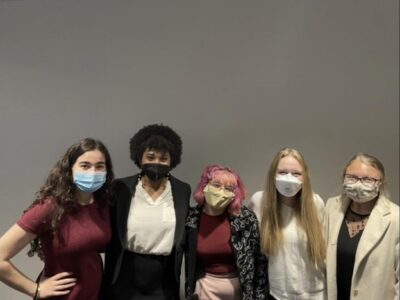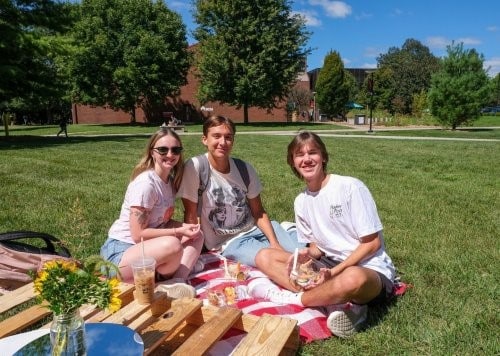By Anna Williams
I am a firm believer that you are what you eat. Food is a powerful biological source that fuels the body to move and the brain to think. Both aspects are crucial for college students; to be successful, one needs to be able to get to class and participate in class.
But what happens if the food that is available to you isn’t ideal for the body to use for fuel?
My dining experience as a type-1 diabetic
Two years ago during my freshman year, I invested in what dining services called the “All Access Plus Plan.” This $2,304 plan allowed me to have the extra funds to go to the POD or Starbucks to grab an orange juice or snack when my blood sugar would get low on campus. It was very important to me as a type 1 diabetic to have access to carbs whenever my blood glucose needed it — it’s what keeps me alive.
This investment was great for keeping my blood sugar levels up when I could feel it dropping, but lackluster for every other aspect of dining on campus.
For example, the meals that I would buy with my expensive plan weren’t reflective of my dietary wants and needs. On the opposing side of my chronic disease, my blood sugar is managed better on low-carb meals. That was very difficult to find on campus. The salad options, for example, weren’t Vinaigrette-level salads that contained superfoods like edamame to keep my stomach filled and brain fueled.
I wasn’t the only one who struggled with dining options
I knew that I wasn’t the only student experiencing difficulty in navigating campus dining. One of my close classmates that year expressed to me how as a vegetarian she felt she was simply choosing sides rather than meals to eat during her day. This was because of the minimal options for vegetarian meals on campus for her to consume, ranging between zero to one at each restaurant.
Coincidentally, both of us found ourselves wanting to add our perspective to the discussion of dining services and meal plans on campus. So, we joined the Engage Lead Serve Board’s Task Force Freshman (TFF) Health and Human Services Committee, where we, along with 3 other girls, made it our mission to push for more inclusive dining options for those with dietary restrictions on campus.
We sat down with the leaders of the Dining Services team and the campus nutritionist to discuss what we have noticed about meal plans as students and what we would like to see improved in the future. These professionals embraced our perspective and promised to make the necessary changes in order to better provide for our dietary needs as students.

2021-2022 Engage Lead Serve Board’s Task Force Freshman (TFF) Health and Human Services Committee Photo Courtesy // Anna
Student voice being represented in meal plans
And that is exactly what happened. As Sarah Belcher, one member of the TFF Health and Human Services Committee, explained two years after advocating for student voice in the decision of meal plans, “I’ve been pleased to see efforts to create more vegan and vegetarian options on campus.”
Not only that, but the experience that the Dining Services team had in collaborating with students to create more inclusive meal plans has inspired them to continue contact with students to hear their perspectives.
“I have really liked seeing how Campus Dining is trying to reach out and get student feedback through their social media and other events on campus,” Belcher said.
Despite these positive efforts, it is realistic to understand that there will always be issues in dining services that need to be addressed. For example, the issues that arise with Aramark, the food service company that the university has partnered with for dining services, and the legitimacy of using food/meal swipes. However, after seeing the rapid improvements that Campus Dining created after listening to the focus group I was a part of, I am confident that U of L will continue to do what is necessary to provide for its students’ dietary needs.
File Photos // Anna Williams, The Louisville Cardinal; U of L Dining






